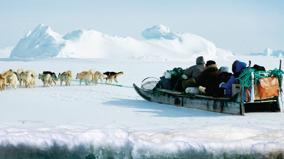Alphée of the Stars
Alphée has a rare genetic disorder that hampers her development. Yet she continues to defy medical expectations. In a moving declaration of love for his daughter, filmmaker Hugo Latulippe and his family steal away for a year, focusing on his daughter's learning, so that she can integrate into a regular classroom when they get home.

Details
Alphée has a rare genetic disorder that hampers her development. Yet she continues to defy medical expectations. In a moving declaration of love for his daughter, filmmaker Hugo Latulippe and his family steal away for a year, focusing on his daughter's learning, so that she can integrate into a regular classroom when they get home.
-
participantAlphée Waridel-LatulippeHugo LatulippeColin Waridel-LatulippeLaure Waridel
-
writerHugo Latulippe
-
directorHugo Latulippe
-
editorAnnie Jean
-
cameraHugo LatulippePhilippe Lavalette
-
original musicAlain Auger
-
sound recordingHugo LatulippeAlain Auger
-
sound designAlain AugerLuc Raymond
-
sound editingAlain AugerLuc Raymond
-
line producerIsabelle Couture
-
producerÉric De GheldereHugo LatulippeColette Loumède
-
assistant directorRaphaëlle BrenuchonIsabelle Couture
-
researcherHugo LatulippeRaphaëlle Brenuchon
-
participationParis AlvesMarion BeneySimon ColombCharlotte DelleyAnastasia DerveyTiffany EgandiRayan El MalikiNoah FonjallazRyan GerberRobin HasslerJérémy HofmannMaude JordanSarah PlatelÉloïse PogetNicole SpycherJacqueline FraefelMuriel Cherpillod VernierMarlise KämpferZoya Stoyanova KolevaLudovic FleuryRoman FleuryManon DuhamelJean-Maurice LatulippeKhalil AshtianiLuka DaviesZélia Deviaene-JurdantHélia Fortin-CaronLily GaudreauMarika KulingIsaë RoyCatherine Gerbelli
-
interviewsMagnus Isacsson
-
additional cameraRaphaëlle BrenuchonLaure Waridel
-
post-production managerIsabelle Couture
-
assistant editorAriane Pétel-Despots
-
editor of the short versionsMathieu Bouchard-Malo
-
post-production studioPost-Moderne
-
colour graderJulien Alix
-
online editorGuillaume Pelletier
-
smoke artistGuillaume Pelletier
-
post-production coordinatorLine LussierMarie-Pier FavreauAnne-Marie Bousquet
-
dialogue editorLuc Raymond
-
re-recordingJean Paul Vialard
-
additional re-recording masherDaniel Toussaint
-
coordinationAnders Arben
-
foley artistSimon Meilleur
-
foley recordingGeoffrey Mitchell
-
marketing managerFrançois Jacques
-
marketing manager - assistanceGeneviève Bérard
-
administratorJohanne DubucSia Koukoulas
-
production coordinatorHélène Regimbal
-
administrative assistantLise Lévesque
-
technical coordinatorRichard Cliche
-
associate producerMaryse ChapdelaineMélanie Lasnier
-
musicianAlain AugerGuido Del FabbroJosh ZubotJean RenéÉmilie Girard-CharestNicolas CaloiaMathieu GagnéDidier Dumoutier
-
music recordingAlain Auger
-
music mixAlain Auger
-
music recording engineerFrancis Bélanger
-
translationVision Globale
-
subtitlesVision Globale
-
copyright releaseIsabelle Couture
-
legal advisorStéphane MorailleRemy Khouzam
-
administrationJean-Denis OlharanNadège Rousseau
-
financingJean-Denis OlharanNadège Rousseau
-
production accountingJean-Denis OlharanMarie-Soleil GaudetteElaine Bigras
-
production secretaryNadège Rousseau
-
auditSylvain Ouellette
Education
Ages 12 to 16
Diversity - Identity
Family Studies/Home Economics - Adolescent Development
Health/Personal Development - Healthy Relationships











